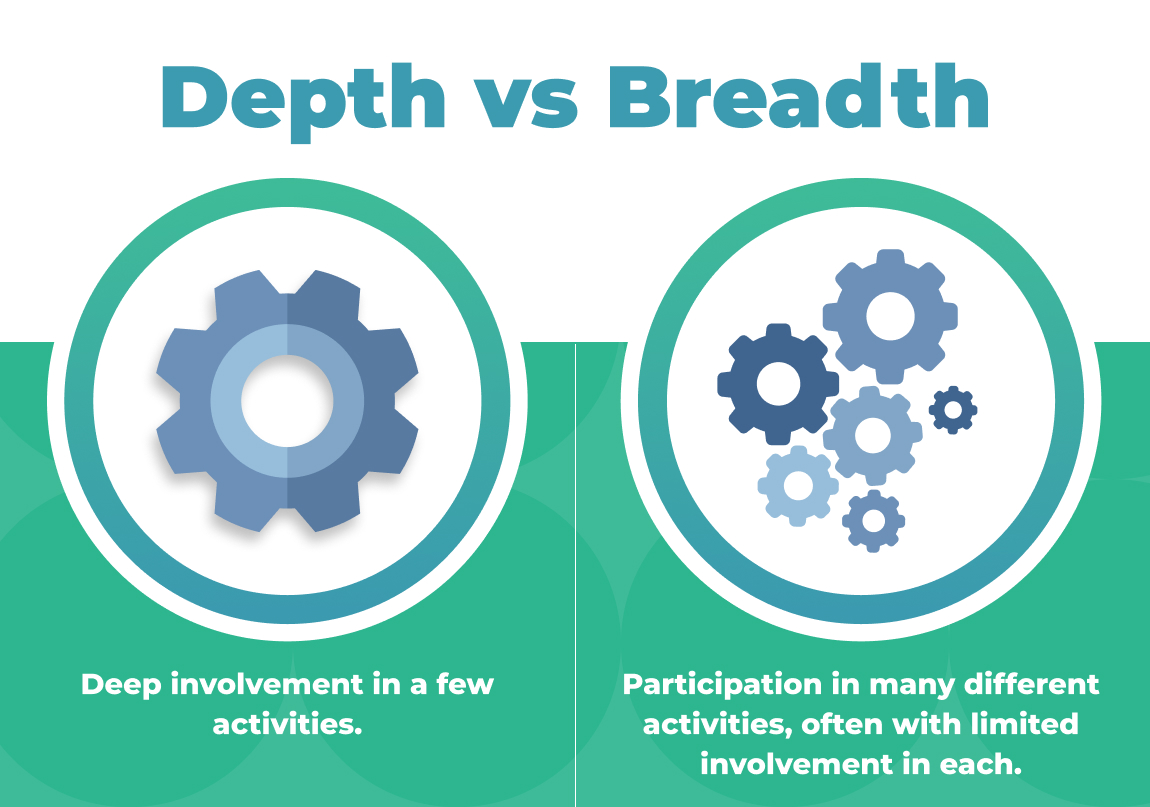
The evaluation of prospective students by institutions of higher education encompasses numerous factors beyond academic performance metrics. Extracurricular activities constitute a significant component of the holistic review process employed by admissions committees across the spectrum of collegiate institutions. This examination seeks to elucidate the specific categories and qualities of extracurricular engagement that college admissions officers prioritize during candidate assessment procedures.
The Rationale Behind Extracurricular Evaluation
Admissions officers utilize extracurricular profiles to ascertain qualities not readily apparent through test scores or grade point averages. Research conducted by the National Association for College Admission Counseling indicates that extracurricular involvement ranks among the factors considered in holistic review processes. Furthermore, these activities provide contextual evidence of an applicant’s time management capabilities, leadership skills, and commitment to interests beyond academic requirements.

Depth Versus Breadth: The Qualitative Assessment
A prevalent misconception among college aspirants involves the accumulation of numerous extracurricular activities with minimal substantive engagement. Conversely, college admissions committees demonstrate a marked preference for sustained commitment and progressive responsibility within a limited number of pursuits.
Many selective institutions explicitly state this preference in their admissions materials. This philosophy permeates the admissions policies at numerous institutions of comparable selectivity. Colleges love to see deep and long-term commitment to activities that help develop valuable skills.
Consequently, a student who has dedicated four years to orchestra with advancement to first chair demonstrates more compelling extracurricular engagement than a peer who has participated superficially in multiple unrelated activities. How many extracurriculars matter less than the quality of involvement and personal growth demonstrated through such activities.
Categories of Extracurricular Activities with Elevated Admissions Value
Academic Extensions and Intellectual Pursuits
Activities that extend classroom learning into practical applications receive particular attention from admissions officers. These include academic clubs such as math club, science club, debate team, and academic competitions such as Mathematics Olympiad, Science Bowl, and Science Olympiad; research internships or independent scholarly projects; specialized courses with substantive participation requirements; and creative writing or literary publications like the school newspaper.
Many selective technical institutions value participation in academic competitions or research projects. Intellectual engagement beyond curriculum requirements distinguishes competitive applicants at research universities and provides a more complete picture of the student’s critical thinking abilities.
Leadership Positions and Organizational Responsibility
Positions that require administrative responsibility, team management, or institutional representation signify capacity for future contributions to the campus community. Admissions committees assess leadership through elected positions in student government, class president roles, team captaincies in sports teams, editorial responsibilities for school newspaper, founding or restructuring of school clubs, and committee chairmanships.
Notwithstanding the specific organization, leadership roles demonstrate initiative and social efficacy. Many selective institutions emphasize the importance of demonstrated leadership qualities and community impact in their admission decisions. Students who start their own club or take on significant leadership opportunities within existing organizations show initiative that higher education institutions value.
Community Service and Civic Engagement
Community involvement with demonstrable impact receives heightened consideration, particularly at institutions with strong public service missions. Admissions officers evaluate sustained volunteer commitments with progressive responsibility, initiative in addressing community needs, quantifiable outcomes of volunteer work, and policy advocacy or civic participation through local charity or local group activities.
Institutions with religious affiliations or strong service traditions often place particular emphasis on community engagement. Service-learning and sustained commitment to addressing community needs at a food bank, animal shelter, or community center align with institutional values at many colleges and universities. The ability to raise money for causes demonstrates social responsibility that extends beyond personal interests.
Creative and Artistic Endeavors
Artistic pursuits demonstrate passion, disciplined practice, and creative problem-solving capabilities. Admissions committees value portfolio development in visual arts, performance experience in performing arts such as theater, dance, or music, publication of creative writing, and participation in juried competitions or exhibitions.
Art schools naturally prioritize artistic portfolios, while liberal arts institutions often value creative expression and artistic development. Even institutions without specialized arts programs recognize the transferable skills developed through artistic discipline, which contribute to future success in the college community.
Athletic Participation and Physical Development
Athletic involvement demonstrates teamwork, perseverance, and physical discipline. While recruited athletes follow specialized admissions procedures, general participation in sports teams remains valuable. Varsity-level competition with progressive skill development offers evidence of commitment and resilience. Team sports emphasize collaboration and strategic thinking, whereas individual sports demonstrate self-discipline and goal-setting. Athletic leadership roles such as team captain further enhance the qualitative assessment of such participation.
Many colleges recognize the valuable skills developed through athletic participation, including time management, perseverance, and teamwork. These real-world skills differentiate applicants from other applicants who may have similar academic credentials.

How Admissions Officers Assess Extracurricular Quality
Beyond categorical preferences, college admissions committees assess extracurricular engagement through several qualitative dimensions. The assessment of impact and accomplishment requires concrete outcomes rather than mere participation. Competitive college applications demonstrate recognition at regional, national, or international levels; quantifiable accomplishments such as funds raised or people served; innovations or improvements implemented; and competitive selection for prestigious programs.
Consequently, a high school student who organized a fundraising campaign to raise money for disaster relief presents more compelling evidence of impact than one who merely attended meetings of a humanitarian organization.
Authenticity and personal connection represent additional evaluative criteria of significance. Activities aligned with stated academic objectives or personal experiences receive heightened consideration. Admissions officers seek evidence that extracurricular choices reflect genuine passions, activities connect to academic objectives, and personal narrative aligns with extracurricular selections. This provides a complete picture of the applicant as one of many well-rounded individuals.
Many institutions emphasize the importance of authentic engagement over resume-building in their admissions guidance materials. Participation in part-time jobs can demonstrate responsibility and practical skills that contribute to a student’s development.
Progressive institutions increasingly evaluate extracurricular participation within the context of available opportunities. Admissions committees consider community resources and limitations, family responsibilities and economic circumstances, employment necessities, and geographic constraints when assessing the relative merit of extracurricular profiles.
Many university systems implement comprehensive review processes specifically to evaluate accomplishments within context. A student who maintained significant employment to support family finances while participating in limited school activities may demonstrate equal or greater merit than peers with extensive extracurricular profiles supported by abundant resources.
Related Article: The Spark Admissions Guide to Writing the Best Common Application Personal Essay
Strategic Implications for Prospective Applicants
The aforementioned analytical framework yields several strategic imperatives for college aspirants seeking their dream school. Students should prioritize depth of engagement over accumulation of activities. The pursuit of leadership opportunities with measurable responsibilities enhances the persuasive power of applications. Documentation of impact through quantifiable outcomes provides concrete evidence of effectiveness. Alignment of extracurricular choices with academic and career objectives demonstrates purposeful planning and authentic interest.
Moreover, the cultivation of distinctive skills or talents within chosen domains differentiates candidates from peers with similar academic credentials. Demonstration of progressive advancement and increasing responsibility indicates growth potential and ambition. Contextualization of participation within available opportunities acknowledges socioeconomic realities while highlighting resourcefulness and determination.
Extracurriculars are a Foundation for Collegiate Success
The evaluation of extracurricular engagement by college admissions committees constitutes a nuanced assessment of character, potential, and non-academic capabilities. While specific institutional priorities may vary, the underlying evaluative principles remain consistent across selective universities. Depth of commitment, leadership capacity, demonstrated impact, and authentic engagement constitute the fundamental criteria by which extracurricular profiles are assessed. Extracurriculars for college admission should develop new skills that translate to the campus community.
Prospective applicants would be well-advised to cultivate meaningful involvement in selected activities aligned with personal interests rather than diversifying participation across numerous domains. Furthermore, documentation of concrete accomplishments and progressive responsibility significantly enhances the persuasive power of extracurricular narratives in admissions contexts.
Nevertheless, applicants must recognize that extracurricular engagement represents merely one component of a comprehensive application portfolio. Academic excellence, thoughtful essays, compelling recommendations, and demonstrated interest in institutional values collectively determine admissions outcomes. Extracurricular excellence cannot compensate for significant deficiencies in other application components, yet distinctive and substantive engagement can meaningfully differentiate candidates with comparable academic credentials.


